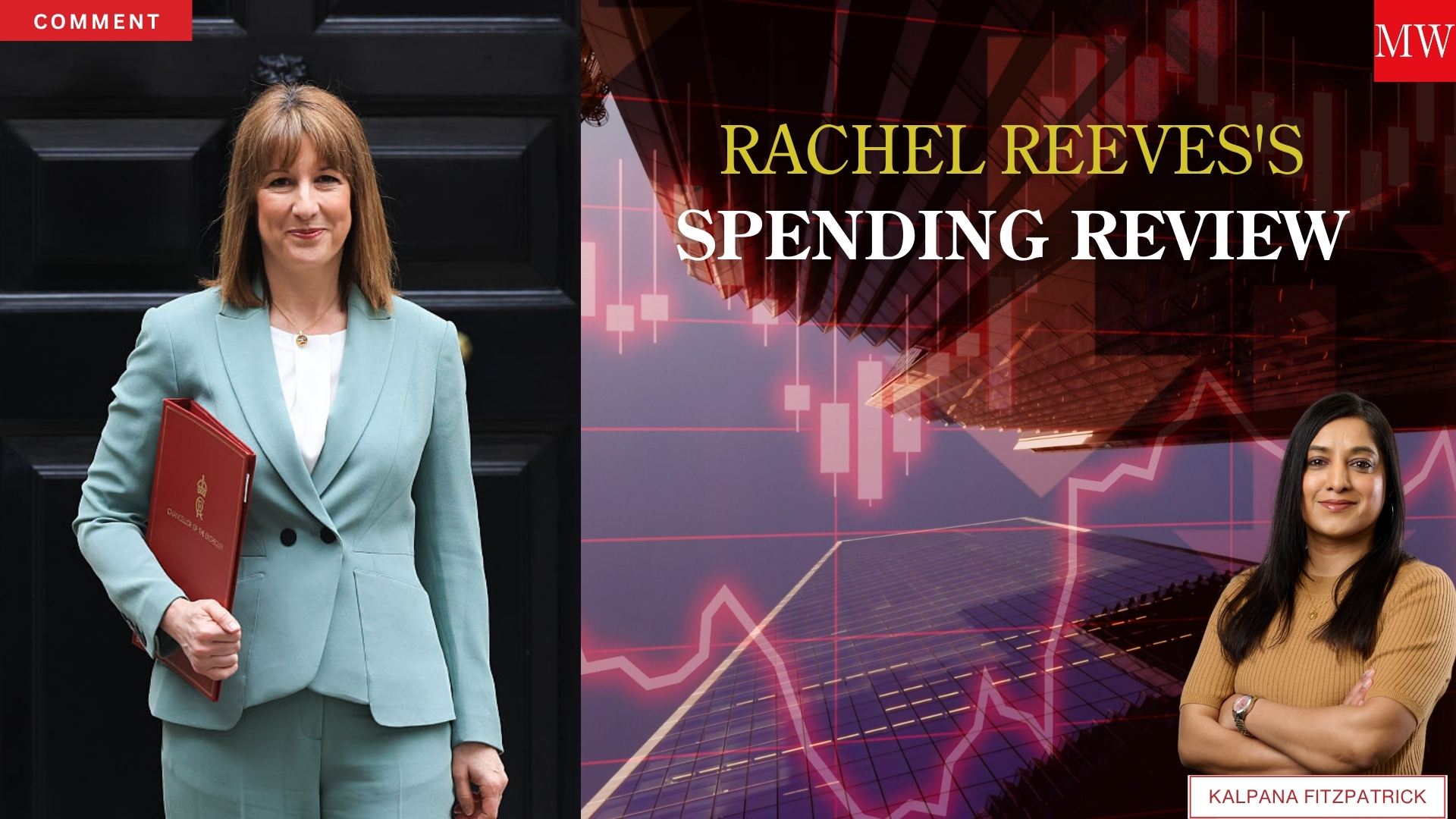Rachel Reeves’s Spending Review: will we see a fresh wave of tax increases?
Labour’s Spending Review gave plenty to chew on and to celebrate with a record £29 billion NHS funding boost, more cash for schools and infrastructure investments – but is it a case of ‘spend now, tax later’?


Get the latest financial news, insights and expert analysis from our award-winning MoneyWeek team, to help you understand what really matters when it comes to your finances.
You are now subscribed
Your newsletter sign-up was successful
Want to add more newsletters?

Twice daily
MoneyWeek
Get the latest financial news, insights and expert analysis from our award-winning MoneyWeek team, to help you understand what really matters when it comes to your finances.

Four times a week
Look After My Bills
Sign up to our free money-saving newsletter, filled with the latest news and expert advice to help you find the best tips and deals for managing your bills. Start saving today!
This was Labour’s first Spending Review and its last shot at convincing voters that the party has a grip on bringing back economic stability and growth for Britain.
The last time we saw a Spending Review was during the Covid pandemic and before that it was in 2015, so it was always going to be an opportunity for the Labour government to really make a song and dance about it, while telling us how taxpayers’ money will be used.
There was plenty to cheer about as chancellor Rachel Reeves set out the government’s plans on how money will be split between the various departments, which included a cash injection of £29 billion to get the NHS back on its feet and bring in initiatives such as mental health support for schools and digital transformation. She also promised £11 billion for defence spending, announced infrastructure investment for towns outside of London, and pledged to improve how public services are delivered through the use of technology and AI to reduce costs and increase efficiency.
MoneyWeek
Subscribe to MoneyWeek today and get your first six magazine issues absolutely FREE

Sign up to Money Morning
Don't miss the latest investment and personal finances news, market analysis, plus money-saving tips with our free twice-daily newsletter
Don't miss the latest investment and personal finances news, market analysis, plus money-saving tips with our free twice-daily newsletter
While Reeves sang out loud about ‘Labour’s choices’ and how the difficult decisions made in the Autumn Budget will help deliver on these measures, there are questions over whether Labour can really afford it and if there is in fact a real plan in place to deliver without additional unplanned costs.
Let’s not forget, Labour was forced to revise one of its most controversial decisions regarding the winter fuel payment. After telling everyone it would only be available to those on certain benefits last summer, Labour this week announced the payment will now be available to a wider group and nine million pensioners will receive it. This change of heart will cost Labour an estimated £1.25 billion. Backtracking on a policy is never a good sign and sparks concerns over whether Labour really does have a grip on spending.
The Spending Review does showcase that Reeves is perhaps doing her best, but is she going to turn to the wealthy and raise taxes if costs spiral out of control? Quite possibly.
Will taxes go up in the 2025 Autumn Budget?
When it comes to politics and tax rises, never say never. Experts and think tanks say it is likely that Reeves may find herself having to balance the books, arguing she has set the government onto a rather ambitious path.
It may be a game of let’s wait and see, but experts and think tanks believe tax increases are on the cards and could be announced in the Autumn Budget. The ICAEW called it a sticking plaster for tax increases.
“Tax rises are now all but inevitable following the chancellor’s decision to significantly bolster defence and health spending, no matter what measures are taken between now and the Autumn Budget. The government’s sticking plaster strategy remains an obstacle to addressing the deep-set challenges facing the country,” Alison Ring, ICAEW director, public sector and taxation, said.
With a little wriggle room, experts believe there needs to be a clear plan or Labour could find itself in a catch-22 situation, with no money to pay for the investments that will grow the economy.
It is early days and there’s a lot of economic data yet to unfold between now and the Autumn Budget. If we’re lucky, we may well see better than expected economic growth.
“But equally the fiscal position could deteriorate before the Budget, leaving an even bigger black hole to be filled by tax rises or welfare cuts,” Laith Khalaf, head of investment analysis at AJ Bell, said. “Rachel Reeves will also have to find some money to continue the freeze on fuel duty, unless she wants to be the first chancellor since 2011 to hike the tax.”
Get the latest financial news, insights and expert analysis from our award-winning MoneyWeek team, to help you understand what really matters when it comes to your finances.
Kalpana is an award-winning journalist with extensive experience in financial journalism. She is also the author of Invest Now: The Simple Guide to Boosting Your Finances (Heligo) and children's money book Get to Know Money (DK Books).
Her work includes writing for a number of media outlets, from national papers, magazines to books.
She has written for national papers and well-known women’s lifestyle and luxury titles. She was finance editor for Cosmopolitan, Good Housekeeping, Red and Prima.
She started her career at the Financial Times group, covering pensions and investments.
As a money expert, Kalpana is a regular guest on TV and radio – appearances include BBC One’s Morning Live, ITV’s Eat Well, Save Well, Sky News and more. She was also the resident money expert for the BBC Money 101 podcast .
Kalpana writes a monthly money column for Ideal Home and a weekly one for Woman magazine, alongside a monthly 'Ask Kalpana' column for Woman magazine.
Kalpana also often speaks at events. She is passionate about helping people be better with their money; her particular passion is to educate more people about getting started with investing the right way and promoting financial education.
-
 Should you buy an active ETF?
Should you buy an active ETF?ETFs are often mischaracterised as passive products, but they can be a convenient way to add active management to your portfolio
-
 Power up your pension before 5 April – easy ways to save before the tax year end
Power up your pension before 5 April – easy ways to save before the tax year endWith the end of the tax year looming, pension savers currently have a window to review and maximise what’s going into their retirement funds – we look at how
